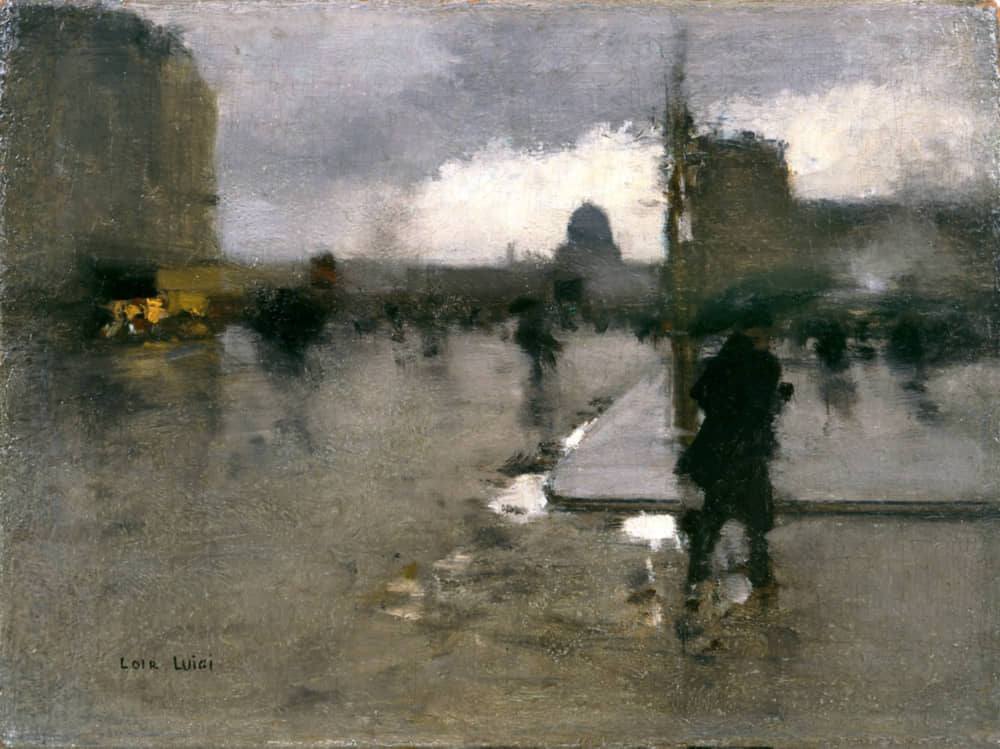Probably, the most vivid memory of Günter Maschke (1943-2022), who passed away on Monday, February 7, 2022, is well-aged, like many a good wine, from many years ago, and goes back to Julien Freund. Here is how Freund portrays him in L’aventure du politique (The Adventure of the Political), in the year of grace 1991:
“A few years ago, in 1986, an international conference on Carl Schmitt was celebrated in Speyer. Even there, the main obsession of the academics present was to know whether Carl Schmitt had been a man of the right, left or center. Which was of no interest. But all of a sudden, a man stood up and spoke spontaneously, speaking off the cuff. His words struck me and consoled me intellectually. I wanted to dine with him at the Feuerbach restaurant. The itinerary of this man, Günter Maschke, is fascinating. Maschke was part of the group of students who fomented riots in Berlin between 1967 and 1968. He was a companion of Rudi Dutschke, Baader Meinhof and some others. Arrested and released on two occasions, he moved to the homeland of his dreams, Cuba. But in Cuba he was arrested and released, thanks to the intervention of a foreign ambassador. At that juncture, he got to know the work of Carl Schmitt well enough to become a specialist in it. ‘I became perfectly aware,’ he told me, ‘that there was an enemy at the center of our action, but we did not know which one, nor did we have the concept of an enemy. And when I read Schmitt, everything became clear to me.’ From an experience like Maschke’s, one comes out transformed and, above all, able to give the right weight to words.”
An indocile and curious man, disillusioned by politics, an erudite polyglot, he came to Schmittian realism. Attentive, as his well-honed work proves, to the concrete aspects of a work, that of Carl Schmitt, and led beyond right and left. But not in a crypto-fascist sense, as some superficial Italian interpreters still characterize him, for better or worse. But rather as a lever—I am speaking of Schmittian work—to study politics through the regularities of the political.
That is, by focusing on the analysis of what really remains, beyond the-all-too easy rhetoric of values and interests. The study, in short, of what precedes and goes beyond politics. And that therefore does not cradle itself in the impotent aesthetics of the nobility of defeat, nor does it caress non-existent totalitarian paradises, just as it disdains the apparently harmless traffic of petty interests.
“That’s how the politician is,” is a recurring expression of his. His was not resignation, but a self-discipline of things imposed by realism. An approach to reality as it is, not as it should be according to this or that moral or religious code. Politics, as an acceptance, I repeat, of the regularities of the political. In primis, as we read in Freund’s portrait, that of the friend-enemy.
Alongside the Schmittian scholar was the “character” of Maschke. Tall, he wore wide-brimmed hats that made him even more imposing. Gruff in appearance, but with the lively eyes of a child, perhaps unrepentant, with a gaze that sometimes, in quiet moments, between one intellectual lunge and another, was lost in the pursuit of who knows what adventures and mysterious exploits of the Puer Aeternus.
However, he was relentless with the opportunists, to whom, as a true Maschkiavelli, who had seen so many things, he reserved sharp jibes. Vanished was the Puer Aeternus…
Jibes, often so subtle that they were not noticed by the unfortunate person at whom they were directed. But not missed by some of the people present, the most cunning, the nearly complicit, the intellectually complicit. A situation that Maschke could morally indulge in, because, as his friend Jerónimo Molina, very close to Maschke, points out in the wake of Álvaro D’Ors, he “had auctoritas.” It is Professor Molina who has written the important “Liber Amicorum ofrecido a Günter Maschke,” which gathers all the necessary critical, biographical and bibliographical elements to deepen our understanding of Mascjke.
I met Mascheke in person. How can I forget a sparkling Roman lunch? But also his many jokes on other occasions, “recited” in an Olympic, imperturbable way. However, I don’t think it’s fair to evoke our deep friendship, as done by many self-promoters, who are ever ready to take advantage of each circumstance. Let’s say that there was mutual esteem.
To Maschke, whom I had met in the mid-1990s I later submitted some writing projects, unfortunately never brought to fruition, not by his fault or mine.
May he rest in peace, to the right of Carl Schmitt.
And note—“right,” not in an ideological sense, but metapolitical. May he be seated, to use a high term, as a political judge, above the misery as well as the nobility of human affairs.
A history without losers, without winners. “So also is the political.”
Carlo Gambescia is a sociologist who studies consumer society. He is the author of several books, including Liberalismo triste. Un percorso: da Burke a Berlin and Retorica della transigenza.
Featured image: “A boulevard in Paris on a rainy day, the Pantheon beyond,” by Luigi Loir, painted ca. late 19th- early 20th-century.
